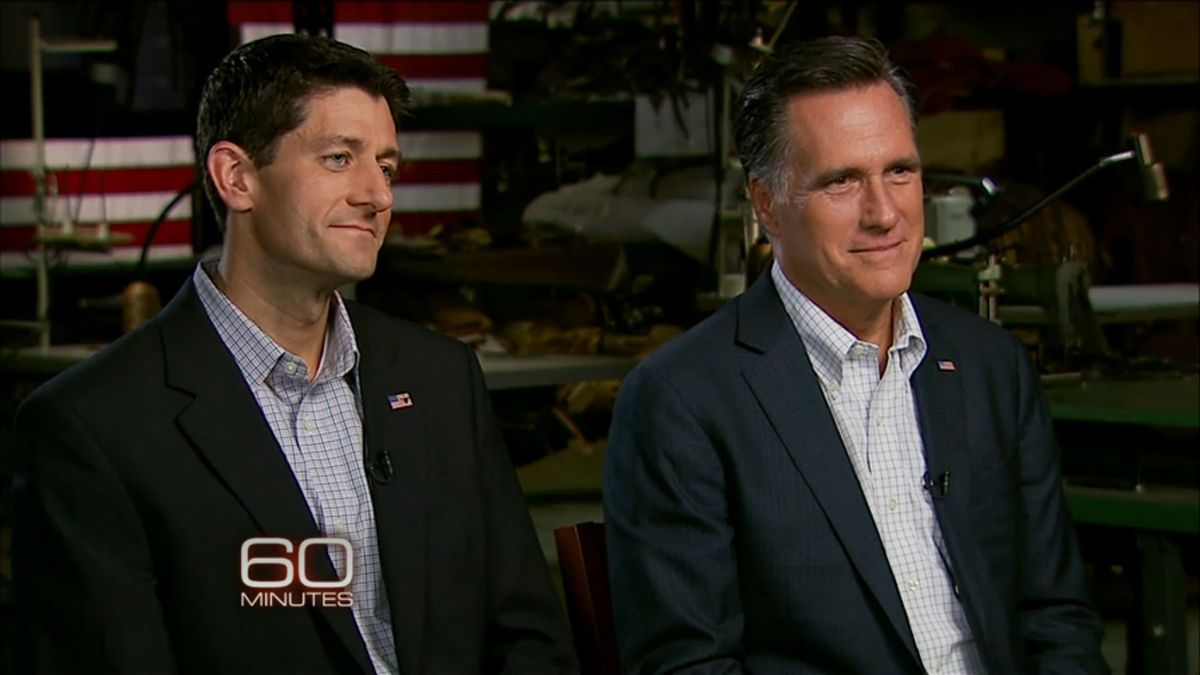With a dry erase marker and a local TV news crew, Mitt Romney today answered one of the biggest questions of his presidential campaign, taking full ownership of presumed vice-presidential nominee Rep. Paul Ryan's controversial Medicare plan. In an interview with WBAY in Green Bay, Wis., Romney explained, "Actually, Paul Ryan and my plan for Medicare, I think, is the same, if not identical -- it's probably close to identical."
It was unclear, until now, exactly how similar Romney's plan would be to his VP's, as the campaign had left some intentional murkiness between the two men. Indeed, Romney's comments contradict the claim from top Romney surrogate John Sununu, who said this week that Romney and Ryan's Medicare plans are "very different." "Our plan is, for people 55 years of age and older, there's no change. The only change I'd mention for 55 or older is we'd restore the $817 billion President Obama took out of the Medicare trust fund," Romney told WBAY -- apparently erroneously adding almost $100 billion to the amount of money he typically accuses Obama of taking from Medicare.
At a campaign stop in South Carolina later today, Romney took a page from Karl Rove's playbook and pulled out a dry erase whiteboard, where he laid out in visual form his talking points on Medicare. The whiteboard had four quadrants, with a column for his plan and another for Obama's plan, and a row for how the two plans would affect "seniors" and the "next gen." Under Obama's plan, Romney wrote "$716 billion cut" next to current seniors and "bankruptcy" next to next generation. For his plan, he wrote "no change" for current seniors and "solvent" for future generations.
Ryan's plan, which Romney has now fully endorsed, was hugely unpopular when it was working its way through Congress, and some polling indicated that people liked it less the more they heard about it. But Romney has clearly made a strategic gamble that he can convince the American people before November that Medicare is in such dire straits that it will die without Ryan's brutal medicine. While many progressives have been quick to dismiss this possibility, and Democrats were gleeful at the news of Ryan's selection, Romney is a cautious and calculating player. He wouldn't make such a decision rashly. He presumably has non-public data -- internal polling, focus groups, Medicare cost projects -- that lead him to believe that he has a good shot at fundamentally shifting public opinion on this issue before Election Day. Democrats would probably be wise to take that threat seriously.



Shares